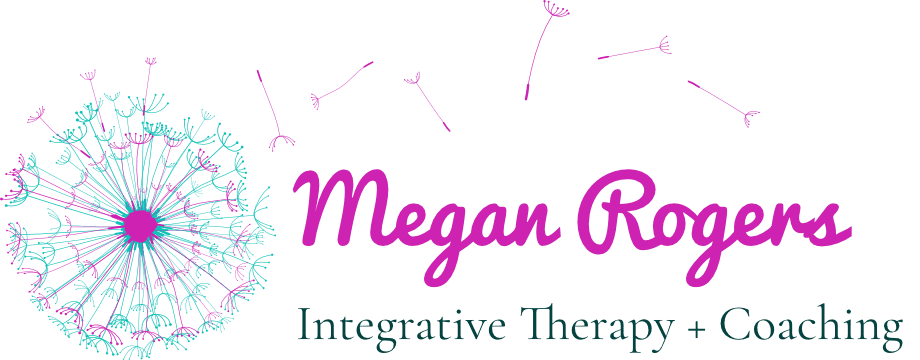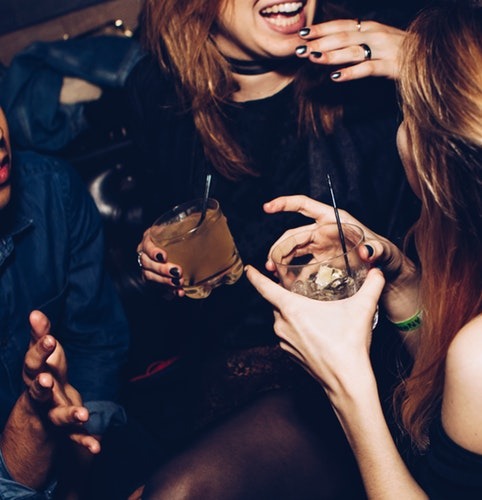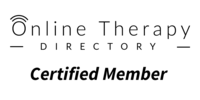Some background… I’ve been a party planner since I was a little kid.
My mom will tell you, I was dreaming up theme parties when my age was still in the single-digits (weird ones, though, like Pirates of Penzance (!?), Duran Duran (OK, that one is cool), and hot dogs (LOL)).
I’m pretty sure I planned every birthday party for myself once I was old enough to do so (this control freak started early, let me tell you). And by the time I was a young adult, I was known for hosting large celebrations (and group camping trips) with everyone I knew. These were complete with elaborate food spreads and themed playlists – way before we had easy-peasy streaming options.
I had plans most nights of my adult life before I got sober – dinner plans, dancing plans, concert plans, getting-f-ed-up plans (which was all of them, really). I can’t tell you how many super judgy and temperamental arguments I had with my husband before I got sober around going out all the time (Him: “Why can’t you just stay home for a night” Me: “Why are you so boring?”).
So you get the point. I like to plan parties and I like to party!
I hate being alone! Love being around people! I’m an extrovert! You can never have too many friends! You can never do too many things!
And then, early in my sobriety: OH GOD. I HATE PEOPLE.
I mean, I don’t, but all of the sudden, that’s what it felt like. What happened? What was going on? Hadn’t I been planning parties and events with friends long, long before I started drinking all the time? Didn’t I just thrive on being with other people, on making friends, and hanging.out.every.single.day?
Clearly this drastic shift was a cause for pause and exploration.
What I uncovered is that a) my love of planning was actually just that. It was never the actual party or event that I enjoyed. Because b) in reality, I felt awkward and uncomfortable around people unless they were my closest people, actually. And even as a kid, I never felt like I fit in. This is one of the biggest ways that alcohol hooked me two decades ago, BECAUSE c) I thought I was an extrovert but really I was just drunk and I’m actually an introvert and d) alcohol masked this, was a quick and easy way for me to feel “comfortable” and at ease with people and not-socially-anxious. Crap!
So, what’s an introverted gal to do when she gives up her special social sauce?
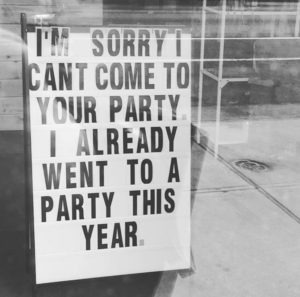 SAY NO*. Turn people down! Stay home! (Ahh, it’s the best; my husband was right!) Once I realized all of this, and started to actually enjoy my own (sober) company, I got to totally shift my social life. I say “got to” because it’s great and it helped me reframe the “having to” change my social life to stay sober. This reframe is necessary if you ever want a full, vibrant, booze-free life.
SAY NO*. Turn people down! Stay home! (Ahh, it’s the best; my husband was right!) Once I realized all of this, and started to actually enjoy my own (sober) company, I got to totally shift my social life. I say “got to” because it’s great and it helped me reframe the “having to” change my social life to stay sober. This reframe is necessary if you ever want a full, vibrant, booze-free life.
Sobriety will be pretty tough if you always feel like you’re missing out on the party or you got the short end of the stick by “having to” stop drinking. I now wholeheartedly believe that drinkers are the ones actually missing out; it’s no exaggeration. You couldn’t pay me a million bucks to get back on that shitty rollercoaster – but this is a perspective that takes time, grace, and an open mind.
Some of your worst fears about getting sober will probably come true:
Your social life will totally change.
For most people, it just will. I, for instance, do not stay up late anymore if I can help it, and I don’t really like going to bars or parties with lots of people. These are things I did many, many nights of the week and now I will only do them in very special circumstances and only if I have socializing energy and I feel like it (never because I feel like I “should” and never when I’m legitimately tired).
While totally flipping your social life upside down probably doesn’t seem desirable whatsoever, I strongly believe the grass is actually greener on the other side. I wake up well-rested most days, I never question whether I was an a-hole or a dumbass the night before, I rarely have to apologize for anything too serious, I can’t remember the last time I looked at my text messages or social media in the morning and wanted to die (of embarrassment or actually for real). Also great: having real fun with your real friends. (See the next two points.)
People will treat you differently (some-to-many of them, often despite their best intentions).
If you think getting sober will only affect you, you’ve gotta think again. It will seriously impact your relationships with most people. We are quick to label things “good” or “bad,” but I stand by my assertion that any relationship results of you quitting drinking are only positive. Your drinking buddies (friends, co-workers, and of course, your partner, if applicable) might have a rough adjustment to this change.
I recognize not everyone has an easy time of this, and I was seriously blessed in this regard. That doesn’t mean I didn’t lose friends; I lost plenty. But, if people have anything to say about your sobriety other than supportive things, then a) they are not your people, and b) there is a 110% chance that you are holding a mirror to their own alcohol issues. I experienced this for sure. I also experienced a more personal a-ha when I realized I had nothing in common with many of my drinking buddies — except for drinking.
Conversations were kinda dull, TBH, and together times were not really that fun. Let’s draw a conclusion and get super clear about this: if you don’t have fun with your friends after you quit drinking, they are not fun friends. No relationship should need liquid poison to make it tolerable, so wish them well and focus on people that matter and people whose company you genuinely enjoy.
You will have nothing fun to do if you’re not drinking.
What will you actually do when you stop drinking? I really, really couldn’t comprehend this; everything social and social-ish in my life included alcohol, morning, afternoon, and night. But while this might seem super daunting in the contemplation phase or early phase of not-drinking, what will happen is: you will get clear on what you really like to do and you will get clear on who you actually like to do it with.
This will take some creativity, some getting-out-of-your-comfort-zone, some brainstorming, some trial and error, and probably some support. 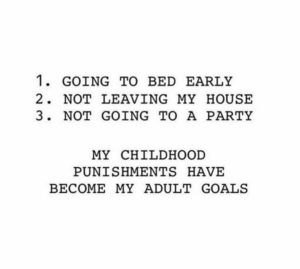 But I promise you, it’s not a hard as it sounds and it’s actually a pretty fun exploration in itself if you keep an open mind. And rewarding; there is something really awesome about having real fun. It might surprise you at first (“That was really fun. I didn’t drink. I had fun. Whoa. Cool.”)
But I promise you, it’s not a hard as it sounds and it’s actually a pretty fun exploration in itself if you keep an open mind. And rewarding; there is something really awesome about having real fun. It might surprise you at first (“That was really fun. I didn’t drink. I had fun. Whoa. Cool.”)
Make a list, an actual list, of things to try and things to do. Doing that really helped me in my early months. As I wrote above, I also got clear on what was no longer fun for me and I have no hesitation about saying “no,” leaving early, or making excuses for myself.
Excuse me very much, but I actually have plans to eat pizza and hang out with my dog. Sorry I can’t come to your happy hour, I’m sure it will be sooooo great.
